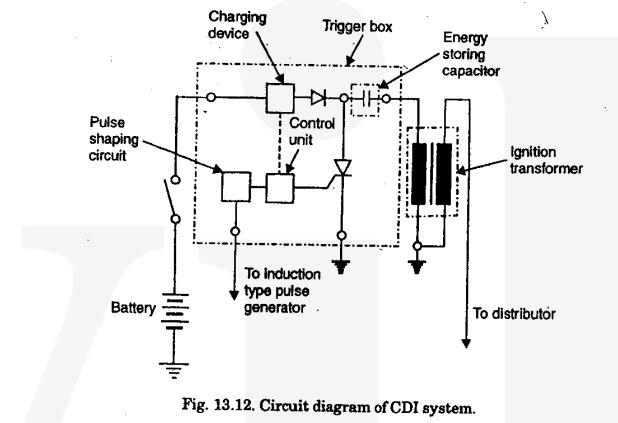Electronic ignition systems enhance engine performance, reliability, and efficiency compared to traditional ignition systems. Here’s a concise overview of the two types you mentioned:
1. Transistorized Coil Ignition (TCI) System

Overview: The TCI system uses transistors to control the ignition coil's firing. It replaces mechanical components with electronic circuitry, providing improved timing accuracy and reliability.
How (TCI) System Works:
- A sensor detects the engine's position and signals the electronic control unit (ECU).
- The ECU controls the transistor, which opens and closes the circuit to the ignition coil.
- This delivers a high-voltage spark to the spark plug at the optimal timing for ignition.
(TCI) System Advantages:
- Improved ignition timing precision.
- More reliable than traditional systems due to fewer mechanical parts.
- Provides a strong and consistent spark across various engine conditions.
check this : 20 questions answered about Ignition System types
2. Capacitive Discharge Ignition (CDI) System

Overview: CDI systems store electrical energy in a capacitor and discharge it quickly through the ignition coil to create a high-voltage spark. This system is commonly found in motorcycles, small engines, and some forms of motorsport.
How (CDI) System Works:
- The electronic circuit charges a capacitor to a high voltage.
- Once the engine reaches a specific position, the capacitor discharges this energy through the ignition coil.
- This results in a very powerful and brief spark at the spark plug.
(CDI) System Advantages:
- Produces a stronger spark than traditional coil systems, improving ignition in challenging conditions.
- Faster spark timing allows for better engine performance and response.
- Can efficiently handle multiple ignition events in high-performance engines.
Summary
Both TCI and CDI systems offer improved reliability and performance over traditional ignition systems. The choice between them often depends on the specific engine application and performance requirements.
If you need more details or want to discuss other types of electronic ignition systems, feel free to ask!

Post a Comment